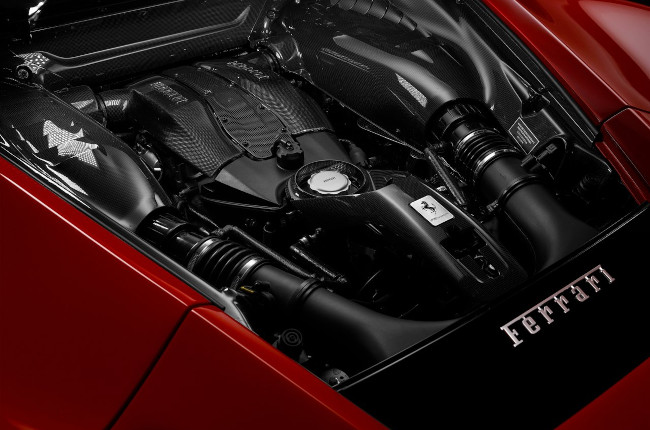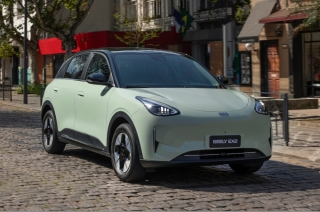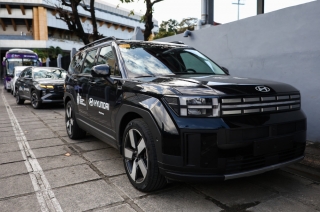
Today marks a monumental milestone in electrification and the beginning of the end for the internal combustion engine as we know it. No, this news isn’t coming from one or a bunch of brands in Europe, but it was voted on by the European Union (EU) itself.
Environmental ministers from 27 counties have agreed to ban the sales of new cars with internal combustion engines by the year 2035. There are no grey areas in the statement, “The Council also agreed to introduce a 100% CO2 emissions reduction target by 2035 for new cars and vans,” which is a numeric way of saying that any car or van that emits CO2 is is illegal to sell brand new. There is also a build-up to the ban by 2030, with a 55 percent reduction in emissions from cars and 50 percent from vans.
“The Council agreed to raise the targets for reducing CO2 emissions for new cars and new vans by 2030 to 55% instead for cars and to 50% for vans. The Council also agreed to introduce a 100% CO2 emissions reduction target by 2035 for new cars and vans.”
Furthermore, the EU also wants to ban the sales of used internal combustion-powered vehicles, but that is a topic for another day, as a decision was not yet reached by the parliament. As it stands, the ban only affects and applies to new cars.
Fossil-fuel-powered vehicles will clearly be out of the question for EU nations, but that doesn’t mean that internal combustion will be a thing of the past just yet. There are developments of hydrogen-powered vehicles all around the world such as the Toyota Mirai, a hydrogen-fuel-cell-powered vehicle that has zero emissions and is part of the growing revolution of cars that run on alternate sources of energy. Other brands, still, are playing around with synthetic fuels, and on the extreme front, even Formula 1 race cars will need to run on entirely sustainable fuels by 2026.
Other automakers are turning to electricity to power the future’s cars and mobility. Seeing cars like the Nissan LEAF and just about any Tesla model tells you that electric vehicles definitely have staying power in the industry, and there are a bunch of people that are more than willing to make the switch.
However, who is to say that the EU won’t change its mind? A lot can happen in a decade, but for now, things are set in stone. The rest of the world might follow in the EU’s footsteps, but we are beginning the see the effects of such a drastic change. Brands like Kia have pledged to go green in the country, while Toyota’s been at the forefront ever since. Nissan’s gearing up for electrification with its e-Power technology and its all-electric EV the LEAF, while many more brands are readying for what the future might hold.
That being said, running up to the 2035 deadline, we can expect European manufacturers to push for zero-emission vehicles, and the internal combustion engine could likely stagnate in terms of development, which is likely to occur with many European brands pulling out their R&D money away from internal combustion engines.
Latest News
-
Geely’s EX2 EV headed to Australia — is a Philippine launch possible? / News
The Geely EX2 is confirmed to go on sale in Australia in 2026. Could a launch in the Philippines also be on the cards?
-
Hyundai Motor Philippines is the FIFA Futsal Women's Teams' official mobility partner / News
Hyundai Motor Philippines strengthened its partnership with FIFA through its support of the FIFA Futsal Women's Teams.
-
Kia Philippines backs EJ Obiena as Atletang Ayala continues championing Filipino athletes / News
Kia Philippines strengthens its support for EJ Obiena, backing the Olympian with dedicated mobility at home and abroad.
Popular Articles
-
Electric Vehicles in the Philippines for under P1 million
Jerome Tresvalles · Aug 19, 2025
-
Top 3 Cars For Every Lifestyle—What Cars Are Right For You? | Behind a Desk
Caco Tirona · Apr 24, 2024
-
5 Tips to Maximize Fuel Efficiency
Jerome Tresvalles · Sep 09, 2024
-
Five driving habits that are draining your fuel tank
Jerome Tresvalles · Jun 24, 2025
-
Can engine braking harm your engine?
Jerome Tresvalles · Sep 11, 2025
-
Do electric cars even need maintenance?
Jerome Tresvalles · Oct 23, 2024
-
Best vehicles for an active outdoor lifestyle
Shaynah Miranda · Jul 25, 2024
-
How to drive different types of vehicle transmissions
May 23, 2024
-
5 easy ways to keep your car interior clean
Allysa Mae Zulueta · Nov 15, 2021
-
How to survive Metro Manila traffic
Earl Lee · Aug 16, 2022




